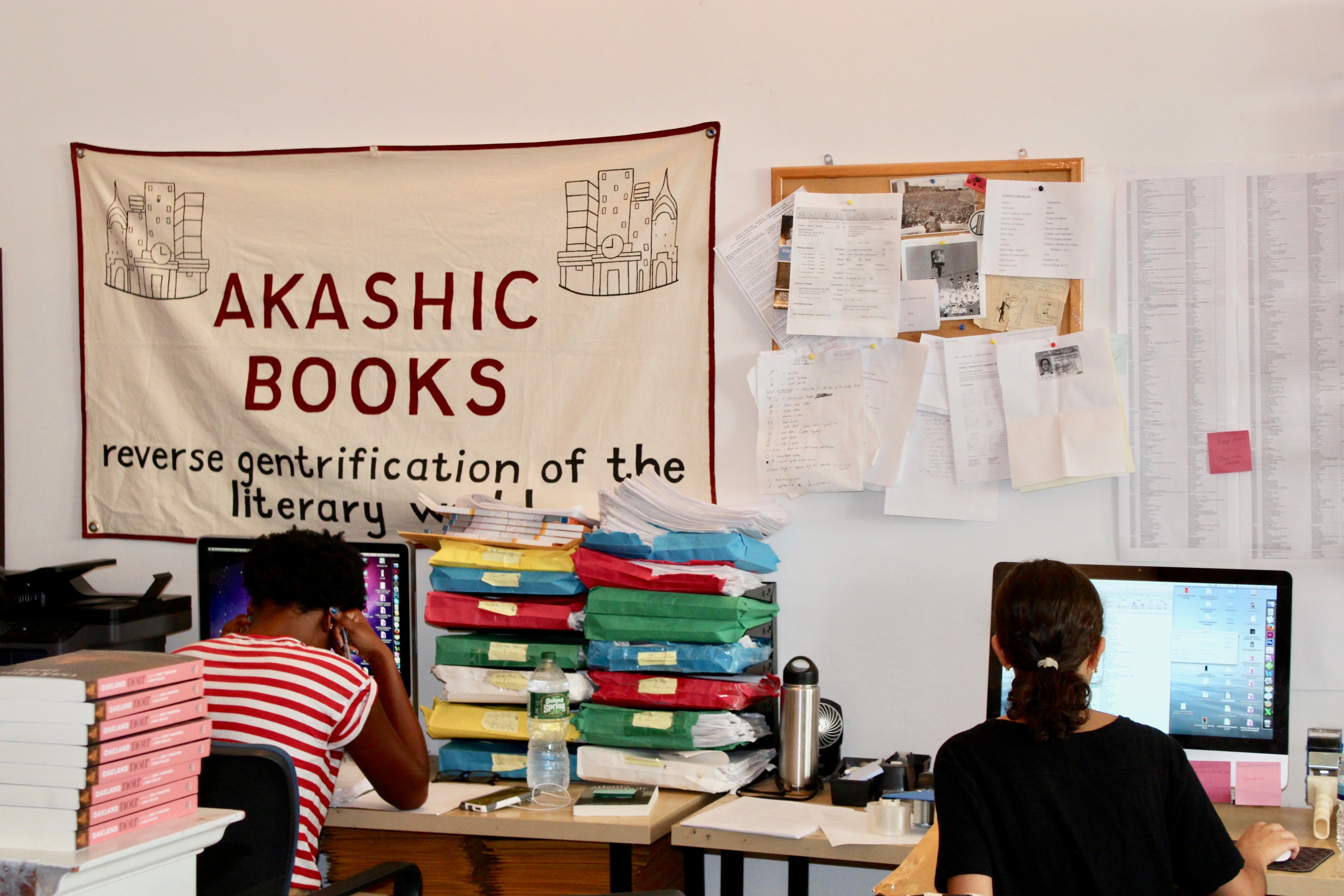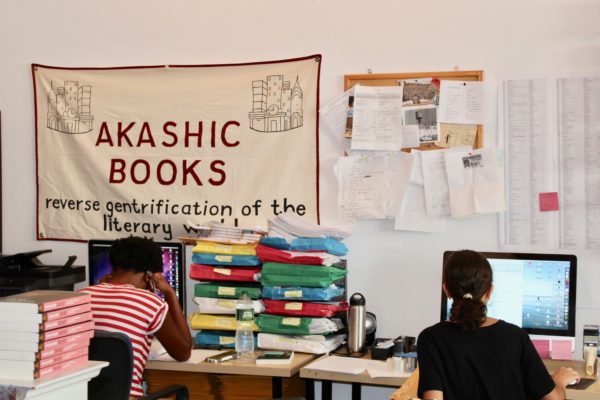
Whether in the form of writing, painting, sculpture or performance, art covers a wide variety of disciplines that all act as a vessel of expression. For many undergraduate students at Stanford, these forms of expression are of the utmost importance. Take Ena Alvarado ’18, for example — an English major originally from Venezuela, Alvarado has been obsessed with all things writing. It was through Stanford’s Summer Internship Program in Arts Administration that Ena was given the opportunity to experience the professional world of literature firsthand, working for a small, independent publisher in Brooklyn called Akashic Books. The company, with a total of six people including Alvarado, focuses on getting the works of Brooklyn-based minority groups out into the world. They boast the motto of being the “reverse-gentrification of the literary world.”
Alvarado had applied to the internship program in previous years, looking for editorial positions, but this was the first summer that she was selected. The eight-week internship program also includes a stipend of $4,500 per student, and it was this compensation that made the program even more attractive to Alvarado.
“This program is really the best of both worlds in the sense that you get to work with people who are doing really cool stuff, and often in intimate settings, but you also get to survive [financially] in whatever city you’re living in,” Alvarado said. “That was the biggest reason, I think, I chose to apply.”
Arts in Student Life Coordinator Miranda Shepherd ’14, MA ’15, now organizes the internship program after participating in it during her undergraduate years. She agrees this compensation from the university is an important factor that makes this program stand apart from other arts internship programs; examples of such internships are the de Young museum’s unpaid summer internship for college students and other unpaid internships in the Bay Area.
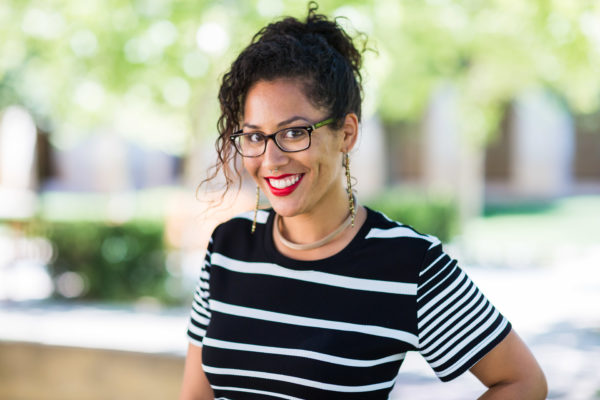
“A lot of times, arts organizations will offer unpaid internships, but that is a huge accessibility barrier, because for folks who can’t afford to work for free, which is a lot of people, it means that they can’t actually end up doing that work,” Shepherd said. “One thing that I’m really proud of and excited about is that it is a paid internship in the arts.”
When she was in the program, Shepherd interned for the summer at the Public Theater in New York, during which she had the opportunity to read one of the early versions of the script for ‘Hamilton’ on the Public’s server. She still remembers her initial reaction after reading.
“It’s just incredible. I had seen ‘In the Heights’ before, so I had some familiarity with Lin-Manuel Miranda’s work and the way that he uses rap and storytelling to really make these beautiful and complex stories,” she said. “It was just really exciting. It was like, ‘I can’t wait to actually see this.’”
This year, Shepherd had the opportunity to take 100 students to see the show through her current position. Watching the show for the first time with them was what she described as a “full-circle moment.”
Beyond reading scripts during her time at the Public, Shepherd also sat in on Wednesday night workshops with emerging writers where they would workshop their own pieces with each other.
“It was really encouraging to see what works in progress look like and to kind of learn to trust my own voice because some of the notes that I was thinking about in these meetings were the same notes that other writers were giving,” Shepherd said. “It was a really encouraging experience for me to realize that with playwriting, you don’t have the perfect play on the first shot, and a lot of times how you get there is through workshops like this.”
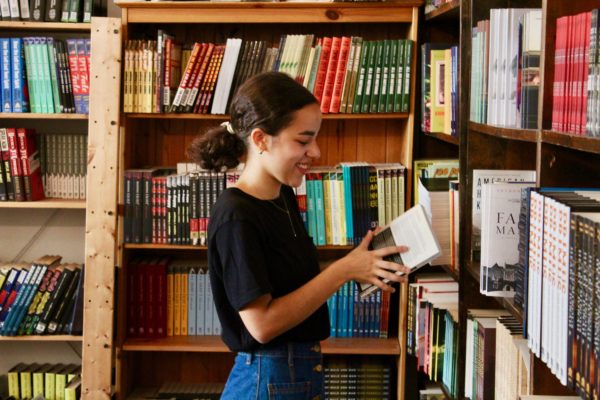
Similarly, for Alvarado, the internship program so far has given her more insight into what happens behind the scenes. In her case, this was understanding the process that goes from finishing the first draft of a book to getting it into the reader’s hands.
“The biggest insight or takeaway I’ve had in the month that I’ve been working is how much of a book’s life depends on the publicity behind it, and the marketing strategies and just aggressive campaigns that aim to make readers know that the book exists,” Alvarado said. “Then the next push of making them actually buy it and read it, I wasn’t aware of how crucial that is. Because at the end of the day, it’s not enough to write the book or to get it published even. You need to have it read, otherwise what did you do all of the work for?”
Through reading books submissions, Alvarado realized what it takes from a publisher’s perspective to consider signing a book to a company.
“If it’s actually super super tedious and difficult to even turn a page and keep on reading, it’s a real effort, then there’s no way the book is salvageable,” Alvarado said. “There has to be a minimum of intrigue, and just keeping the reader engaged, wanting to know what happens next.”
While in the program, Alvarado realized that while this type of work is important, if she isn’t in a strictly editorial position, it’s not for her. She isn’t completely sure what these options will be, Alvarado mentioned a desire to go back to her home country of Venezuela to help with development or possibly become a teacher. Without this program, she might not have considered these options: Her experience at Akashic led her to learn more about what she wants to do after finishing school.
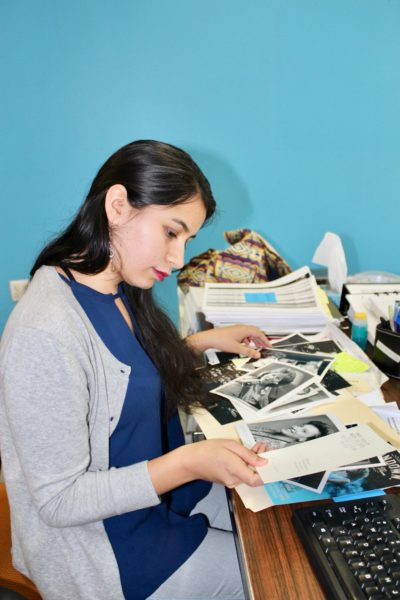
For Michela Rodriguez ’18, working at the WP Theater in New York — which publishes works written solely by women and transgender playwrights — has found a convergence between her two loves: theater and her major in Feminist, Gender, and Sexuality Studies. In her position, Rodriguez reads script submissions and goes to prospective script readings and productions, and reporting back on whether the theater should consider producing them.
“It’s been a huge growing experience for me, one to sort of be a self-motivated person because my desk is far away from everybody else’s desk, so I could easily not do work all day, but I feel obligated to do so, and I really like what I do,” Rodriguez said. “I’ve been reading a lot of scripts, and I’ve been learning how to be a better reader of scripts which is not something I’ve had to do in the past.”
Working at WP has given her the opportunity to work closely with the rest of the company, as the organization itself is not very big. While working in the family-like atmosphere that mimicked her experiences with theater at Stanford, Rodriguez was also tasked with going through the theater’s archives, and what she found there astounded her.
“There are pictures of Audra McDonald, and Maya Angelou and Whoopi Goldberg…Judy Dench, just photographs and photographs,” she said. “[There’s even one of Sarah Jessica Parker] when she was a teenager — she was in a play that they did in 1981, I think.”
In Shepherd’s mind, this internship program is not only important because it makes a higher-paid arts internship possible, but also because it helped her realize that she could have a career in the arts.
“Through this internship [as well as] the Community Arts Fellowship through IDA (Stanford’s Institute for Diversity in the Arts), I realized that ‘Oh yeah, this can actually be a job. This can actually be a life. This is not something that I need to reserve for nights and weekends — this can be my 9 to 5,’” Shepherd said.
Now, as she works supporting others’ arts careers, she is also continuing her own through performance and writing work. While these two perspectives are very different, for Shepherd, it solidifies her reason for devoting her life to art.
”Writing for yourself is very different from writing emails to make sure internships are in place, but being involved in both is helpful because it helps you have a firsthand understanding of why we’re doing this work,” Shepherd said. “The arts has always been so important to me so to be able to support other people’s work and support my own work is a pretty incredible opportunity.”
This year, they had over 280 applicants for 23 internship opportunities, but Shepherd noted that a lack of funding has unfortunately led them to turn away many qualified applicants in past years, including the 2017 summer internship cycle. Nevertheless, she hopes the access that the stipend gives to Stanford students, regardless of personal economic background, can help students realize the same thing.
“We’re making sure that this is not only a foot in the door, but one that is accessible to all undergraduates,” Shepherd said.
Contact ZaZu Lippert at zazulippert ‘at’ gmail.com.
